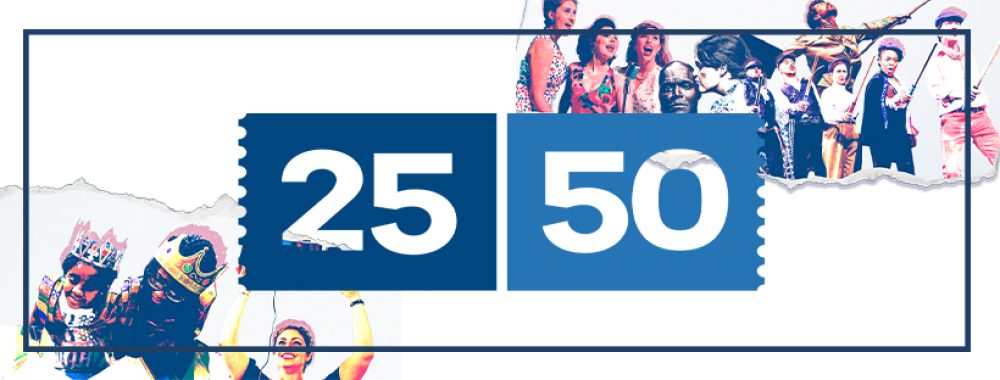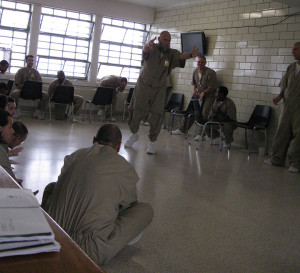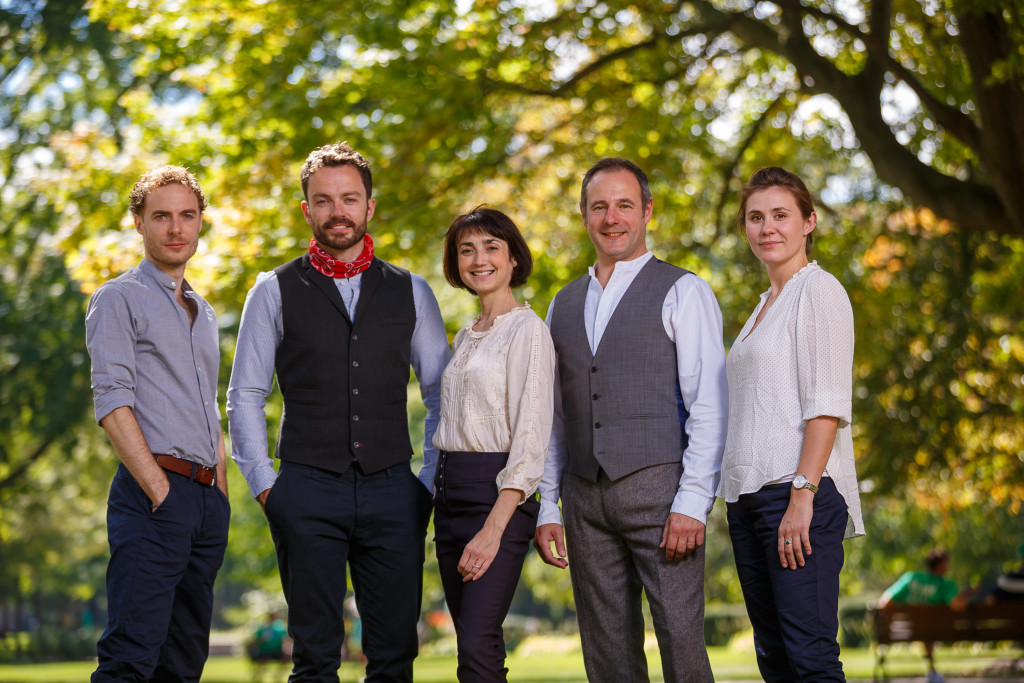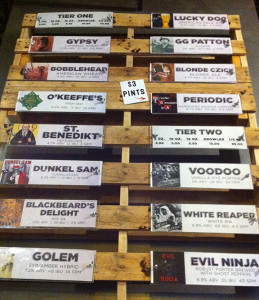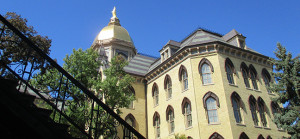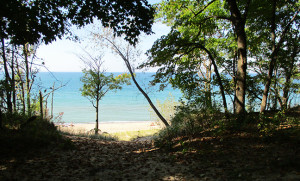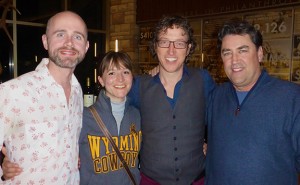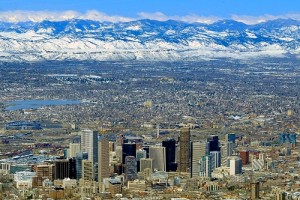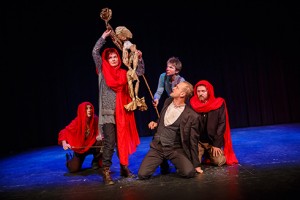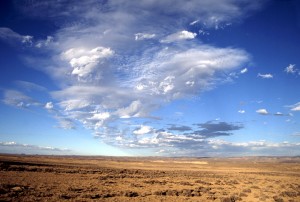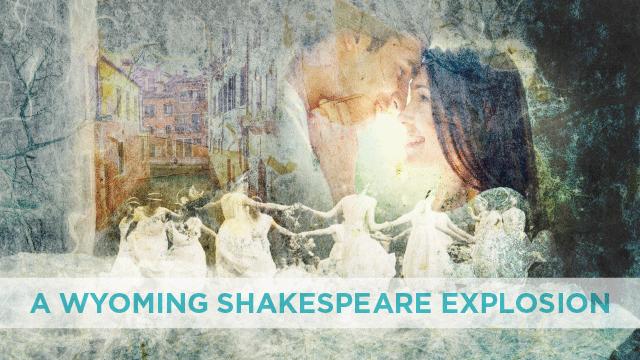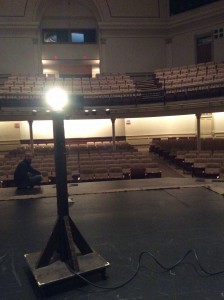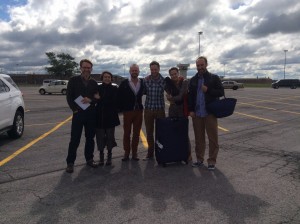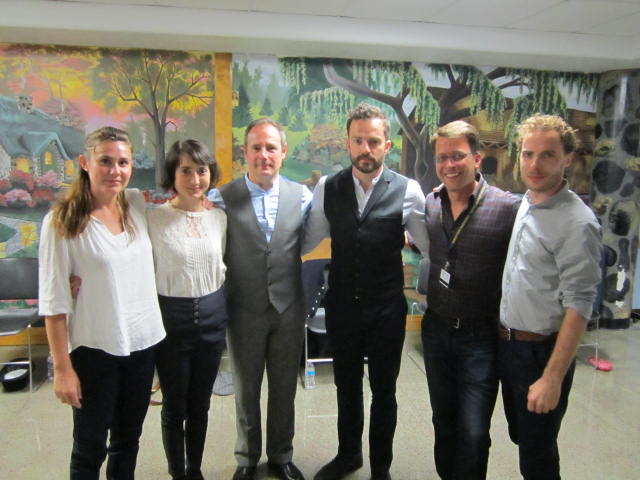
Our merry ‘Midsummer’ cast at the Westville Correctional Facility, pictured with Shakespeare at Notre Dame Executive Director Scott Jackson (second from right).
I have never been into a prison before. Apprehensive does not come close to describing my feelings about it. From the stipulations about my underwear to the sign saying that carrying a cell phone into the prison is classified as a felony, all the rules and responsibilities, the dos and don’ts, made the anticipation of Sunday’s two-hour workshop at Indiana’s Westville Correctional Facility palpable.
Getting into Westville is a similar experience to going through airport security. We showed our ID, took off our shoes, went through a metal detector, and finally got patted down by a guard. This is where the experience began to differ from the airport; rather than being released to fly off to a sunny beach, we were held in a Sally Port. For those of you unfamiliar with this term, this is a holding area with two heavy metal mesh doors – only one opening at any one time. Finally, you are escorted in a van to the designated cellblock.
As we arrived in A3 and were led down the corridors, we felt the prisoners watching us. The initial meeting was awkward, no one knowing what the exchange was going to be. This awkwardness was eased through playing theatre games. I don’t know much about the prison system or the lives of the men incarcerated there, but I’d guess that play is not a huge part of life at Westville. We taught them our games and they taught us ones that they had done with Scott. (On Sunday I won ‘Zip, Zap, Zoom,’ a very proud moment!)
Samuel Collings led us all in the click game. This is where a click is passed around the circle as if it is a ball. In our production the click represents the flower ‘love in idleness.’ After the initial games, we played with the text of The Tempest. We created a storm using our hands, the floor, plastic chairs, the walls, our voices and breath – anything we could bang and make a racket with – and what a wonderful racket we made. (The guards commented on it.) Kyle, a man covered in tattoos with a neck the size of my thigh and a voice that would give Barry White a run for his money, volunteered himself for the part of Ariel, the very airy spirit. He had us in stitches and his enthusiasm was infectious. As we moved through the edited version of The Tempest, we got to know this group very well.
On Friday, when we came back to perform the play, an inmate told me that the prisoners had reprised Wednesday’s click game and had the entire block playing it. So, when Patrick came on as Puck carrying the flower, a ripple of excitement swept across the watching audience, knowing exactly how Puck was going to pass the flower to Oberon.
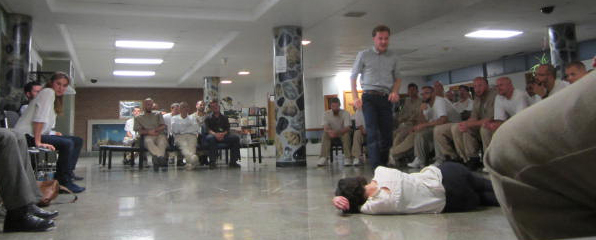
AFTLS actors Samuel Collings (standing as Oberon) and Claire Redcliffe (on floor as Titania) perform a scene from “A Midsummer Night’s Dream” at the Westville Correctional Facility
The Westville shows were our first public performances of the Dream, and we couldn’t have asked for a better response. I speak for all of us when I say it was extremely rewarding and an experience we will never forget. By Friday, we had met, worked with, and become invested in many of the inmates; it was sad to leave.
Thank you Scott Jackson for organizing our week at Westville.
— Actress and Midsummer blogger, Ffion Jolly
(Note: The AFTLS Midsummer cast will return to Notre Dame in 2016 to perform and discuss their Shakespeare in prison experience at the Shakespeare in Prisons: In Practice conference January 25-27.)
